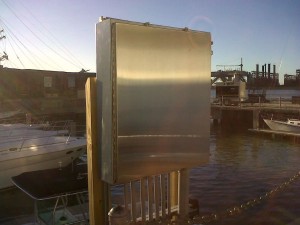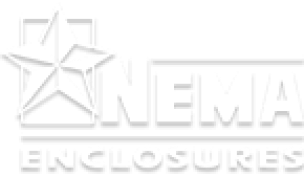-
Recent Posts
- Nema Enclosures Mfg. awarded ISO 9001:2015 re-certification as a Seal of Quality Standard
- NEMA 3RX Rating Now Offered
- NEMA ENCLOSURES MFG. RECEIVES ISO 9001:2015 CERTIFICATION
- Learn about our ATEX & IECEx Ex e Value Added Features and Accessories
- Motor Control Center (MCC) Drop-Over Custom Enclosures
Archives
- May 2021
- February 2021
- July 2018
- October 2017
- September 2017
- April 2017
- January 2017
- December 2016
- March 2016
- February 2016
- October 2015
- August 2015
- July 2015
- May 2015
- October 2014
- August 2014
- June 2014
- April 2014
- March 2014
- February 2014
- September 2013
- August 2013
- July 2013
- June 2013
- May 2013
- April 2013
- February 2013
- January 2013
- December 2012
- November 2012
- October 2012
- September 2012
- March 2012
- February 2012
- August 2011
- May 2011
Offshore Marine Enclosures
 We build a variety of custom enclosures for offshore, marine, corrosive atmosphere applications and we are asked what material is best suited for them. 5052 Aluminum is an acceptable material especially when weight of an enclosure is an issue. It will eventually show signs of surface corrosion or surface pitting after prolonged exposure to salt water/ or corrosive environments.
We build a variety of custom enclosures for offshore, marine, corrosive atmosphere applications and we are asked what material is best suited for them. 5052 Aluminum is an acceptable material especially when weight of an enclosure is an issue. It will eventually show signs of surface corrosion or surface pitting after prolonged exposure to salt water/ or corrosive environments.
A common practice to reduce or minimize those effects are to anodize the enclosure. Anodization increases surface hardness, increases corrosion resistance and is non conductive. The coatings can withstand up to about 80 degrees C, prolonged exposure to high temperatures can cause cracking in the finish, but it will not peel.
The other option is to construct the enclosures out of Stainless Steel. We use both 304L and 316L grades of stainless. Both materials are suitable for corrosive environments due to their Chromium and Nickel content but they are substantially heavier than Aluminum. Of the two materials 316L stainless steel is the most corrosion resistant material for constriction, this is due to the higher Nickel content and the addition of Molybdenum. But what about hardware? Many people ask for an enclosure constructed in 316L stainless and also request all the hardware (nuts, bolts, and fasteners) be constructed from 316L stainless as well. Although 316L stainless steel is the best material for corrosion resistance on the body of the enclosure it is not the best material for hardware. 304L stainless steel has higher strength and wear resistance than 316L stainless, due in part to the slightly higher Chromium content. With higher strength and wear resistance and a lower cost than 316L hardware it is the best choice of hardware on any enclosure that will be exposed to corrosive environments. Please share your feedback or send any questions you might have about metals in corrosive environments, we love to talk metal!
This entry was posted in enclosures. Bookmark the permalink.
